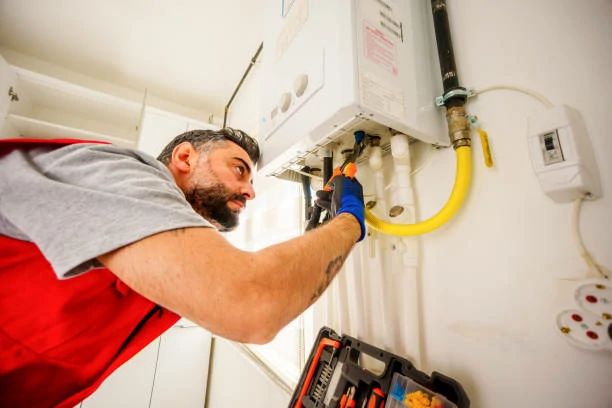Введение
Importance of Gas Pipeline Safety
Ensuring the safety of gas pipelines is critical. Gas leaks can lead to explosions, fires, and health hazards. Regular inspections minimize risks and maintain the integrity of the gas supply system.
When to Conduct Safety Inspections
Conduct safety inspections regularly and after any significant events, such as earthquakes or construction work nearby. Frequent checks help identify potential issues before they become serious problems.
Visual Inspection
Checking for Visible Damage
Inspect gas pipelines for visible damage, such as cracks, dents, or corrosion. Look for signs of wear and tear that could compromise the pipeline’s integrity. Promptly address any observed damage.
Inspecting Pipe Joints and Fittings
Examine pipe joints and fittings for signs of leaks or wear. Ensure all connections are secure and free from any gas odor. Loose or damaged fittings can cause leaks and should be tightened or replaced.
Observing Surrounding Environment
Inspect the area around the gas pipelines for potential hazards. Look for overgrown vegetation, debris, or structural changes that could affect the pipeline. Clear any obstructions to ensure easy access and visibility.
Odor Inspection
Detecting Gas Odors
Smell the air around gas pipelines for any hint of gas odor. Natural gas has a distinct, rotten egg-like smell. If you detect this odor, it indicates a gas leak that requires immediate attention.
Using Gas Detectors
Utilize gas detectors to check for the presence of gas in the air. These devices provide accurate readings and can detect even small leaks. Regularly calibrate and maintain gas detectors for reliable performance.
Pressure Testing
Conducting Pressure Tests
Perform pressure tests to ensure the pipeline maintains proper pressure levels. Use specialized equipment to pressurize the system and monitor for drops in pressure. A stable pressure reading indicates a healthy pipeline.
Monitoring for Pressure Drops
Check for any drops in pressure during the test. Pressure drops can indicate leaks or weak points in the pipeline. Investigate and repair any issues before restoring normal operation.
Corrosion Inspection
Identifying Signs of Corrosion
Inspect pipelines for signs of corrosion, such as rust or discoloration. Corrosion weakens the pipeline and can lead to leaks. Regularly treat and protect pipelines to prevent corrosion.
Using Corrosion Detection Tools
Employ corrosion detection tools to assess the condition of the pipeline. These tools measure the thickness and integrity of the metal. Address any detected corrosion promptly to maintain pipeline safety.
Leak Detection
Conducting Leak Tests
Perform leak tests using appropriate methods, such as soap solution tests or electronic leak detectors. Apply soap solution to joints and fittings and look for bubbles, indicating a leak. Electronic detectors provide precise leak detection.
Monitoring for Changes in Gas Consumption
Monitor gas consumption patterns for any unexpected changes. Sudden increases in gas usage can indicate a leak in the system. Investigate and resolve any anomalies in gas consumption.
Valve Inspection
Checking Valve Functionality
Inspect all valves in the gas pipeline system. Ensure they operate smoothly and can fully open and close. Replace any malfunctioning valves to maintain control over gas flow.
Inspecting Valve Seals
Examine valve seals for signs of wear or damage. Worn seals can cause leaks and reduce the effectiveness of the valve. Replace damaged seals to ensure a tight and secure fit.
Documentation and Reporting
Maintaining Inspection Records
Keep detailed records of all inspections, including dates, findings, and actions taken. Documentation helps track the condition of the pipeline and ensures compliance with safety regulations.
Reporting Issues Promptly
Report any issues or anomalies found during inspections to the appropriate authorities. Prompt reporting allows for timely resolution and prevents potential hazards.
Training and Education
Training Personnel
Ensure that personnel conducting inspections are properly trained. Provide regular training sessions to keep them updated on the latest inspection techniques and safety standards.
Educating Occupants
Educate building occupants about gas safety. Inform them of the signs of gas leaks and the steps to take in an emergency. Knowledgeable occupants contribute to overall safety.
Emergency Preparedness
Developing an Emergency Plan
Create an emergency response plan for gas leaks or other pipeline issues. Ensure all personnel and occupants are familiar with the plan and know their roles in an emergency.
Conducting Drills
Regularly conduct emergency drills to practice the response plan. Drills help identify weaknesses in the plan and improve readiness for real emergencies.
Заключение
Regular safety inspections of gas pipelines are essential for preventing leaks and ensuring the integrity of the gas supply system. Visual inspections, odor detection, pressure testing, corrosion checks, leak detection, and valve inspections are critical components. Proper documentation, training, and emergency preparedness enhance overall safety. Consistent and thorough inspections help maintain a safe and reliable gas supply
Подключайтесь
ИФАН является китайским производителем пластиковых труб, фитингов и клапанов с 30-летним опытом работы. Если вы заинтересованы в ИФАН медные фитинги, медные клапаны, пластиковые трубы и фитинги, пожалуйста, свяжитесь с нами. ИФАН предлагает вам разнообразные стандартные трубы для удовлетворения ваших конкретных потребностей. Нажмите ниже, чтобы узнать больше о широком ассортименте доступной и экономичной арматуры и сопутствующих товаров для трубопроводных систем от IFAN.
Мы ответим на ваше письмо или факс в течение 24 часов.
Вы можете позвонить нам в любое время, если у вас возникнут вопросы по нашей продукции.
Для получения дополнительной информации, пожалуйста, посетите наш веб-сайт https://ifanpro.com/
Отправить по почте: [email protected]
Whatsapp: + 86 19857948982














Последние комментарии